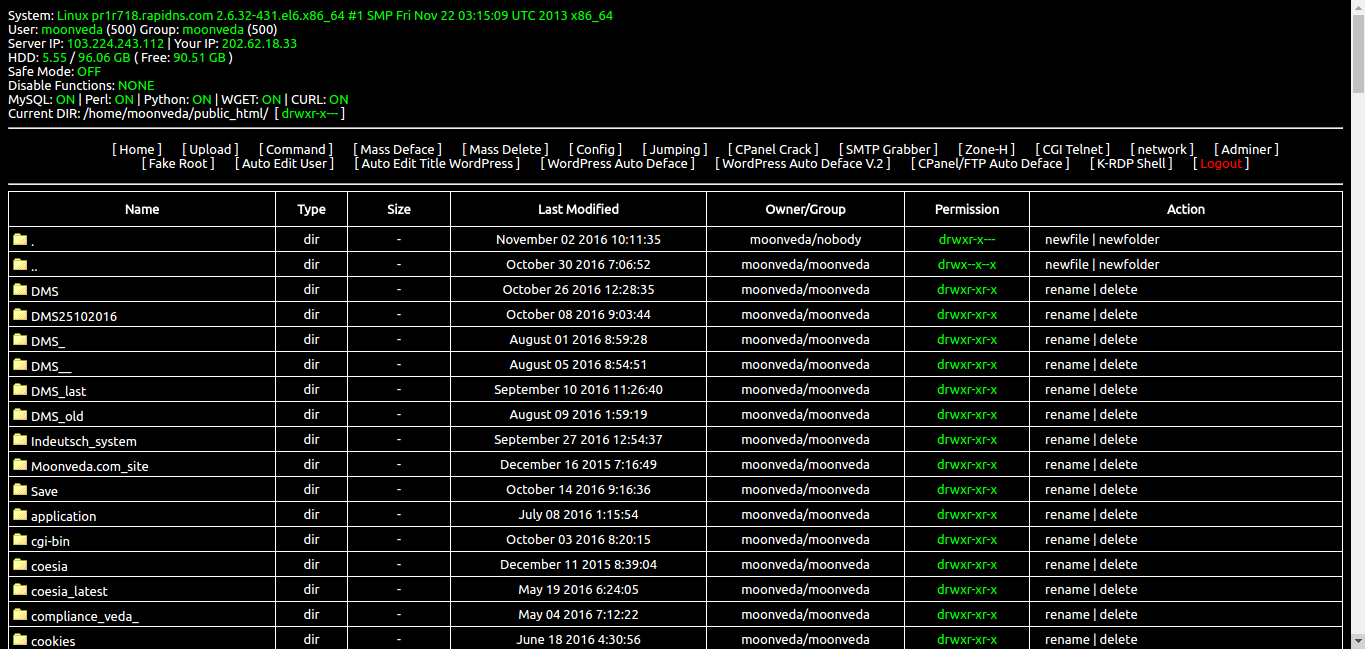Versions

Raj Chandel is Founder and CEO of Hacking Articles. He is a renowned security evangelist. His works include researching new ways for both offensive and defensive security and has done illustrious research on computer Security, exploiting Linux and windows, wireless security, computer forensic, securing and exploiting web applications, penetration testing of networks. We can use the Back-Connect module of r57/c99 shell or to upload a backconnector in a writable folder In most of the shells there is a backconnection feature without to upload the Connect Back Shell (or another one shell in perl/c). We will analyze the first way which is inside the shell (in our example the shell.
| Version | Standard | Release Year |
|---|---|---|
| POSIX.1 | IEEE Std 1003.1-1988 | 1988-01-01 |
| POSIX.1b | IEEE Std 1003.1b-1993 | 1993-01-01 |
| POSIX.1c | IEEE Std 1003.1c-1995 | 1995-01-01 |
| POSIX.2 | IEEE Std 1003.2-1992 | 1992-01-01 |
| POSIX.1-2001 | IEEE Std 1003.1-2001 | 2001-12-06 |
| POSIX.1-2004 | IEEE Std 1003.1-2004 | 2004-01-01 |
| POSIX.1-2008 | IEEE Std 1003.1-2008 (aka 'Base Specifications, Issue 7') | 2008-12-01 |
| POSIX.1-2013 | IEEE Std 1003.1-2013 | 2013-04-19 |
| POSIX.1-2016 | IEEE Std 1003.1-2016 | 2016-09-30 |
What is POSIX?
POSIX stands for 'Portable Operating System Interface' and defines a set of standards to provide compatibility between different computing platforms. The current version of the standard is IEEE 1003.1 2016 and can be accessed from the OpenGroup POSIX specification. Previous versions include POSIX 2004 and POSIX 1997. The POSIX 2016 edition is essentially POSIX 2008 plus errata (there was a POSIX 2013 release too).
POSIX defines various tools interfaces, commands and APIs for UNIX-like operating systems and others.
The following are considered to be within the scope of POSIX standardization:
- System interface (functions, macros and external variables)
- Command interpreter, or Shell (the sh utility)
- Utilities (such as more, cat, ls)

Outside of POSIX scope:
- DBMS Interfaces
- Graphical Interfaces
- Binary code portability
C99 Download
Hello World
A simple Hello, World program without error checking:

And with error checking:
C99 Shell Github
Compiling and running

If the code shown above (either version) is stored in file hello.c , then you can compile the code into a program hello using either c99 or make. For example, in a strictly POSIX compliant mode, you might in theory compile and run the program using:
C99 Php Shell Tutorial
Most actual make implementations will use a different C compiler (perhaps cc , perhaps gcc , clang , xlc or some other name), and many will use more options to the compiler. Clearly, you could simply type the command that make executes directly on the command line.
C99 Shell Download
